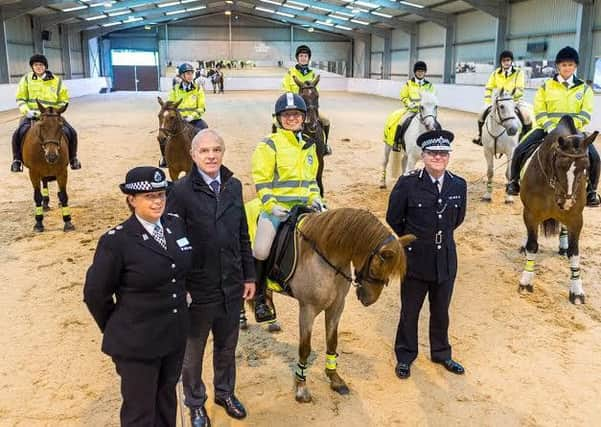New volunteers on horseback to be ‘eyes and ears’ of Warwickshire Police


The Mounted Police Support Volunteer Scheme is a partnership between Warwickshire Police, Moreton Morrell College (part of the Warwickshire College Group), the British Horse Society and Horse Watch and has been funded by the county’s Police Commissioner Ron Ball.
Issued with high visibility jackets and trained in road safety and horse riding, the volunteers will look out for suspicious activities or any behaviour or incidents requiring police action while out on their regular rides along bridleways, lanes and country roads. They do not have any greater powers of arrest than any other citizen and will not take on the same responsibilities as special constables or regular mounted police, but they will work closely with police safer neighbourhood teams, providing intelligence and information to help support crime prevention.
Advertisement
Hide AdAdvertisement
Hide AdPolice Commissioner Ron Ball said: “With their elevated positions on horseback, the mounted police support volunteers have a unique vantage point and can spot many things that someone on foot or in a vehicle might not otherwise be able to see or even be able to get near to. This is all valuable information which might not otherwise come to police attention.
“By acting as the eyes and ears of the police, they can make a real difference in driving out crime from our rural areas. They will also provide a visual deterrent to crime – criminals tend to avoid communities where they know people are looking out for each other – and help provide a positive link between the police and rural communities, particularly in the more isolated areas.
“Tackling rural crime is one of my key priorities and I have been a particular champion of this scheme from its outset, so I am delighted to see the first volunteers complete their training and begin their work across Warwickshire.”
The scheme will run for an initial 12 months before it is reviewed by Mr Ball and a decision is made as to how it should continue. If it proves successful, further opportunities to volunteer may be made available.